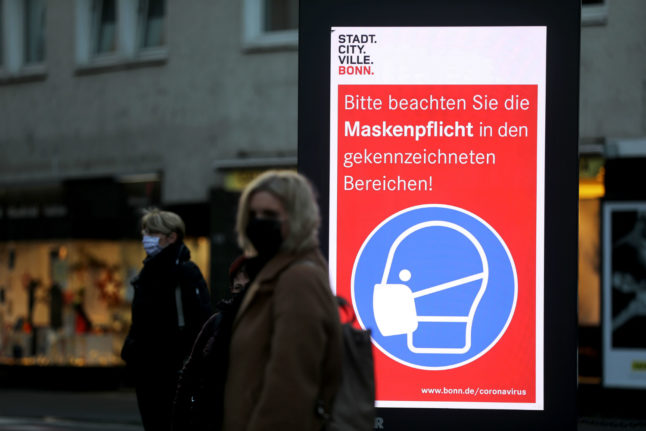Health authorities reported 410 new coronavirus-related deaths within 24 hours, the Robert Koch Institute (RKI) said on Tuesday.
This is the highest number of daily deaths recorded in Germany since the start of the pandemic. The highest number to date was in mid-April, when 315 deaths within one day were logged.
The total number of people who have died in connection with Covid-19 in Germany now stands at 14,771, according to official figures.
One of the reasons for the increase in deaths is likely down to more older people contracting the virus.
“The proportion of outbreaks with over five people within the settings of nursing homes has continuously and considerably increased since week 38 (week beginning September 16th 2020),” said the RKI in its Tuesday situation report.
Meanwhile, the number of patients being treated in intensive care units in Germany for Covid-19 has also reached record levels this month, raising fears that health care providers will become overwhelmed.
“Since mid October, the number of Covid-19 patients requiring intensive care has strongly increased, from 655 patients on October 15th to 3.770 patients on November 24th,” the RKI said.
Within a day, 18,633 new infections were recorded – about 1,000 cases more than a week ago. Last Wednesday, the number was 17,561.
READ ALSO: What is Germany's new coronavirus test strategy for winter?
According to the latest figures from the RKI, a total of 961,320 cases of infection have been registered in Germany since the beginning of the pandemic. The number of people to recover stands at 656,400.
According to the RKI, the so-called seven-day reproductive number (R0) was 0.97. This means that 100 infected persons will go on to infect on average almost 100 more people. The number reflects the level of infection 8 to 16 days ago.
According to experts, an R number of 0.7 or lower would be ideal to get the infection situation under control.
Last Friday November 20th, there was a record number of Covid-19 infections reported in Germany, with 23,648 cases within 24 hours.
On Wednesday Chancellor Angela Merkel and state leaders were expected to meet to discuss how Germany will deal with the situation in the coming weeks, including over Christmas and New Year.
READ ALSO: What will Christmas 2020 be like in Germany?



 Please whitelist us to continue reading.
Please whitelist us to continue reading.
Germany needs to sort itself out. this isnt good enough. Other countries are now doing much better